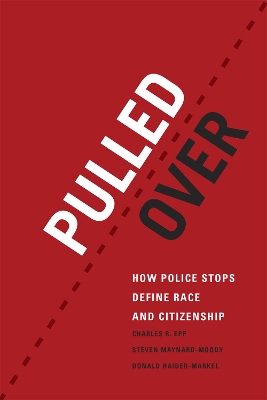Chicago Series in Law and Society
1 total work
Pulled Over
by Charles R. Epp, Steven Maynard-Moody, and Donald P. Haider Markel
Published 4 April 2014
In sheer numbers, no form of government control comes close to the police stop. Each year, twelve percent of drivers in the United States are stopped by the police, and the figure is almost double among racial minorities. Police stops are among the most frequently criticized incidences of racial profiling, but while studies have shown that minorities are pulled over at higher rates, none have examined how police stops came to be encouraged and institutionalized. Pulled Over deftly traces the strange history of the investigatory police stop. The authors show that who is stopped and how they are treated convey powerful messages about citizenship and racial disparity in the United States. For African Americans, investigatory stops erode the perceived legitimacy of police stops and of the police generally, leading to decreased trust in the police and less willingness to solicit police assistance. This holds true even when police are courteous throughout the encounters and follow seemingly color-blind institutional protocols. In a country that celebrates racial equality, investigatory stops have a deleterious effect on minority communities that merits serious reconsideration.
Pulled Over offers practical recommendations on how reforms can protect the rights of citizens and still effectively combat crime.
Pulled Over offers practical recommendations on how reforms can protect the rights of citizens and still effectively combat crime.
